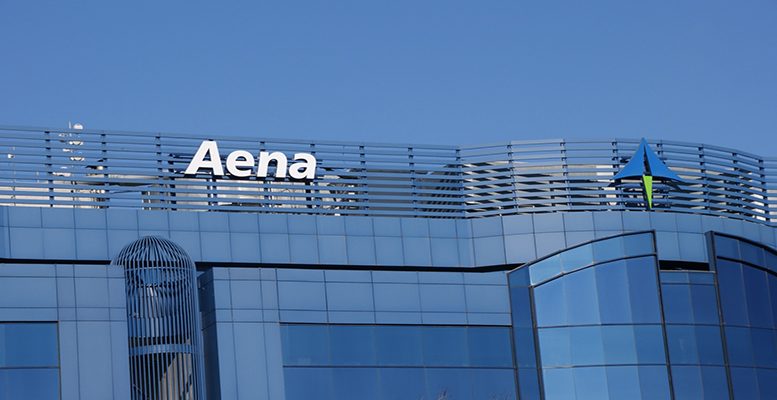They say that governing is all about choosing (between what is bad and what is worse) and this government is once again facing a difficult decision: whether to lower AENA’s airport tariffs, thus benefiting Spain’s tourism industry which generates the most jobs, or do their own thing and make money. I say this because, obviously, the best way of making money is not to lower the tariffs AENA charges the airlines.
The airport operator, which has had great success in the stock market since its debut in February 2015, has begun to limp a bit over the last three months. And this is precisely because of the doubts over what Mariano Rajoy’s government will decide about tariffs. Faced with this uncertainty, investors have preferred to wait and see what happens, which has meant that AENA’s stock price performance has been lateral.
While the airlines are demanding that tariffs be cut by 2.6%, AENA is naturally arguing that they should be frozen. This is the lesser of two evils given that, in accordance with the DORA (Document for Airport Regulation), tariffs are not allowed to be increased until 2025. The airline companies argue that tariffs rose 68% between 2010 and 2013 (even around 100% at Barajas and el Prat airports) and that lowering them will cut the cost of travel and airport traffic in Spain will increase. They also make the point that other tourist airports in the Mediterranean are lowering their tariffs to minimum levels, which makes Spanish destinations less competitive.
Finally, these companies say that a cut in tariffs would not affect AENA’s revenues, in part because their commercial revenues (shops) are soaring and because air traffic to Spain is growing at a rapid pace. In 2015, the forecast for the increase in AENA’s passengers was 3%, but finally they rose 5.9% to 207 million. This year it’s estimated that the number of passengers will rise 10% to 230 million. The carriers’ point of view is supported by the National Competition Commission, which also recommends a 2% cut.
In AENA, they are defending their standpoint tooth and nail. They are conservative in their estimates for the increase in traffic (of course they tell analysts something else!). And they explain that a cut of 2% means a few cents for the airlines (6% of their costs according to AENA and between 15% and 25% according to the airlines), while that would translate into 2 billion euros less in revenues for the operator over the next 10 years.
Despite a 1.9% cut in tariffs last year, AENA’s revenues rose 12.4% to 3.450 billion euros. But of course up to June 2016, they only rose 8.2% to 1.7 billion euros. The company is worried that the pace of growth is beginning to slow.
Of course AENA’s board, made up of representatives from the State (51%) and various investment firms, are completely focused on maximising the operator’s revenues and profits. Not cutting tariffs would be a very significant piece of news for these shareholders as well as for the market in general. There is no doubt that the stock price, which is now in wait and see mode, would recover its upward trend.
So it doesn’t look as if there is any doubt that the government will behave like any other shareholders. Just as it has not shown any objection to raising special taxes, although it has a negative impact on consumption, its main interest in this case is that AENA’s stock price picks up again. In the end it will agree with the operator and freeze tariffs.
This is because the current Public Works Minister, Iñigo de la Serna, has already made it clear that his deparment is studying the partial sale of the State’s stake in AENA. In fact the government doesn’t need to be a shareholder to control the Company as the Cabinet and the Civil Aviation Authorities will continue to take the key decisions: the airports are and will remain a regulated sector. On the other hand, it’s been estimated the government could raise about 3.8 billion euros from the sale of just 20% of its stake in AENA. This is not an amount to be sneezed at, given the commitment to Brussels over deficit reduction. So it doesn’t look like the government is facing, what we would say, a desperate Hamlet-like dilemma.





